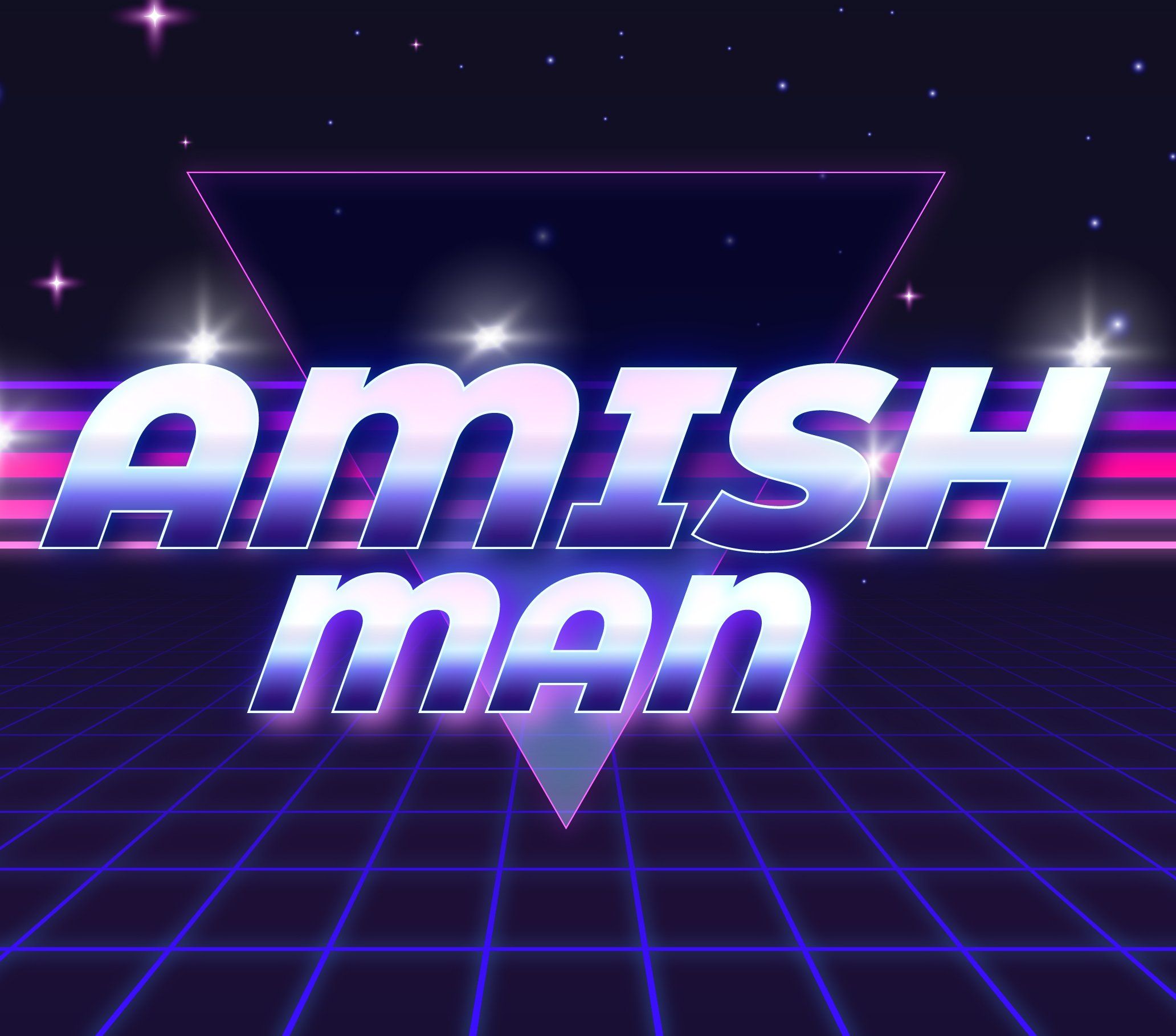Hi guys, first of all, I fully support Piracy. But Im writing a piece on my blog about what I might considere as “Ethical Piracy” and I would like to hear your concepts of it.
Basically my line is if I have the capacity of paying for something and is more convinient that pirating, ill pay. It happens to me a lot when I wanna watch a movie with my boyfriend. I like original audio, but he likes dub, so instead of scrapping through the web looking for a dub, I just select the language on the streaming platform. That is convinient to me.
In what situations do you think is not OK to pirate something? And where is 100 justified and everybody should sail the seas instead?
I would like to hear you.
I find it’s very context dependent. In the 3d model/printables, a lot of people who release the pirated content so a 3-4 month embargo to allow the creator a chance to let people get it legally before it’s available everywhere.
deleted by creator
Any content that exists solely to put ads in front of my kids is 100% fair game and not just ethically allowed, but creates an ethical necessity to remove it from it’s advertising.
deleted by creator
I am thinking specifically of broadcast tv kids shows that I have no problem with my kids watching, but that are broadcast with kid targeted ads in my country. I much prefer to rip them and let the kids watch them without commercials.
Sure makes sense. I think once kids are involved you pretty much have primacy in 90% of scenarios out the gate.
Piracy is always ethical unless you undoubtedly show proof that it harmed someone.
I give you a hint: it almost never actually does.
-Not available to buy or only second hand for exorbitant prices (cough cough Nintendo) -Overpriced subscription (cough cough Adobe) -Getting a version of a game you already bought free of invasive or resource-heavy -Trying out a paid program/game/etc. with the intent of buying it if it you like it and it runs well
I’ll add to protest a company’s practices.
Paying for the product after viewing/using it if you like it or it’s good.
My favorite refrain as a kid was “we’ll buy a copy at the show” lol. In our defense we often did!
It wasn’t uncommon for me in my pirating days to buy a game or a CD if I downloaded it and really liked it. I wanted to support the creators, I just couldn’t afford to buy everything and learn that most of it was trash.
I remember doing that a lot with music
I’d say all piracy that isn’t bootlegging or otherwise profit motivated is pretty ethical. It’s basically a decentralized museum of modern art that our tragically morally bankrupt society can’t be bothered to allow for the legal preservation of.
If a product is no longer for sale on any storefront, or the edition for sale is lacking content had by previous versions of the same product, piracy is morally correct for the sake of archival and preservation
To me it’s like buying a physical book, but then downloading a drm version of the ebook.
IMO it’s better to not pirate small indie content (mostly games in my case).
Assuming they release on Steam of course
Steam really needs their 30% cut, good you’re here to provide it to them
Steam offers rather valuable services to the developer in exchange for that fee though. You get to use Steam’s existing infrastructure for content delivery, payment processing, advertising, community management, authentication (not necessarily DRM), multiplayer services, etc. instead of having to implement and maintain it all on your own. Self-publishing is not easy nor is it cheap.
Happy to
To run a storefront and do R&D to develop handheld PC’s, simple at-home streaming, and higher quality VR? Yes, it’s reasonable for them to charge an industry standard rate as a storefront
If it is not available to buy anywhere for me and the only way is piracy, I feel like piracy is justified. No one loses anything on this scenario.
Won’t someone please think of the poor corporations sitting on those IP rights hoping to squeeze them for profit someday?
You’re practically taking the bread out of the CEOs mouth
- When the content is no longer available for retail purchase (i.e old games or shows that have been pulled entirely [see Infinity Train])
- You have a physical copy, but want a digital version.
Or content you have purchased and have now lost access too, or shit if you buy something at all you can ethically pirate it. You already paid!!
Slightly more gray: content I’ve already paid for in one form or another. I spent like $100 going to the theater to see Mario with the family. I’m not losing sleep over adding it to my Plex when it hits VOD.
This is doubly true for games, which tend to be re-released over and over again on different platforms. This is true to a lesser extent for things like movies, but it’s much worse with gaming where each console is a closed ecosystem that’s incompatible with other systems. At least with Blu-Ray, you can expect any Blu-Ray player to play the movie you’ve purchased. It’s not like a Toshiba player will only play Toshiba brand Blu-Ray discs.
Companies love to use the “you don’t own the game, you own a personal license to use the game” line when revoking rights to play games you’ve legally purchased… But that goes both ways; If you own a personal license to use the game, it shouldn’t matter what platform it’s on, because it’s the same game regardless of whether you’re playing on PlayStation or PC.
I pay for a smattering of VoD services, I don’t lose sleep over watching something that isn’t available on them.
If corporate greed didn’t force a hundred different services on us, then it might be different.
You say you don’t want 100 different services, but do we really want all media content to be under one roof or just a few players? Consolidation is also terrible for media/art. That’s basically why so many people are against the Actibliz acquisition.
All media content under all services.
I’d love that but it’s just not realistic because of how the media publishing landscape currently is. Happy to advocate for that but moving that needle will take decades. My response is it’s usually somewhere in the middle. 5-10 major players, maybe some smaller ones as well. I don’t need access to literally everything ever made. Libraries already have a wonderfully large free collection as it is (for anyone reading this Hoopla is amazing and countless libraries have massive catalogs on it)
Sure, it’s not an easy thing to achieve for sure, but I won’t lose sleep over them losing revenue because they can’t figure it out quickly enough.
Even moreso where it comes to media that’s just not available any more. If you, a content IP owner, don’t make that content available for purchase, then you have only yourself to blame if people pirate it.
If you, a content IP owner, don’t make that content available for purchase, then you have only yourself to blame if people pirate it.
I don’t think we are entitled to someone creative work just because they made it. That opens way too many doors.
@hoodatninja @majestictechie @vis4valentine @Kushan @charles Isn’t it obvious? They want many players to have all of the content. Which is possible, because content doesn’t run out if one service plays it too much.
It could also have music streaming style. Where the features of platform is the more pull then content.
Spotify supports far more range of devices. Tidal sounds so much better, deezer is slightly worse quality than tidal but for more country. YouTube music gives you add free YouTube etc.
Straight black but I still consider ethical:
The entire “going to the movies” experience is terrible for me and my wife, only going to get worse with a runt on the way. It’s certainly a fault of the theater I try and attend, but I’m not driving 2 hours for a decent viewing experience.
I pirate like CRAZY. BUT if I find a film/TV show I really enjoy, I certainly do my part in word-of-mouth or digital marketing for them. It’s certainly once it’s left the theaters but I wasn’t going to that anyway. It also gives a chance for older films/series to get some funding that I may not have picked up otherwise.
Occasionally if there’s a film/show that’s a standout, I’ll buy a physical copy. Honestly I never open them as I have a more convenient digital copy on plex but I do put in some for it.
That said, watch Grave Encounters 1 (not 2…) and Cabin in the Woods. I believe they’re both on Netflix but absolute top tier movies if you’re into horror for GE or horror parody for CITW, cabin possibly being in my top 5 of all time.
Also that said, I’ve seen way too many episodes of MTV Cribs for me to care about it too much >:(
Paying for a ticket isn’t the same thing and I’d argue that’s not morally justified piracy. You went from a rental to ownership at a rental price.
I thought you were going to say something like “I already bought a copy of Star Wars thirty years ago, then THEY made the way I watch it obsolete, so I don’t feel as bad getting another copy since I already paid for it once.”
That would be closer to moral than “well I watched it in the theaters once, so I totally own a copy!”
We’ve all got our lines, mate. That’s the point of this post.
- You have a physical copy, but want a digital version.
Kind of similar but I feel like pirating content you have legal access to (Steam, Spotify, Amazon, Netflix, etc.) in a way to get around DRM is ethical.
For example wanting to listen to songs you have on Spotify on an iPod or reading ebooks purchased from Amazon on your PC.
Concerning the first point there is also the case of content getting altered. For example TV shows that switch songs because of licensing.
When the money goes to people who did not create the media. Support creators, not exploiters.
That’s almost everything.
Correct.
That’s why I pirate almost everything
deleted by creator
My take on this is summed up much better by Cory Doctorow, and best written up in the foreword of his book “Makers”, which he published for free online.
There’s a dangerous group of anti-copyright activists out there who pose a clear and present danger to the future of authors and publishing. They have no respect for property or laws. What’s more, they’re powerful and organized, and have the ears of lawmakers and the press. I’m speaking, of course, of the legal departments at ebook publishers.
…
Why am I doing this? Because my problem isn’t piracy, it’s obscurity (thanks, @timoreilly for this awesome aphorism). Because free ebooks sell print books. Because I copied my ass off when I was 17 and grew up to spend practically every discretionary cent I have on books when I became and adult. Because I can’t stop you from sharing it (zeroes and ones aren’t ever going to get harder to copy); and because readers have shared the books they loved forever; so I might as well enlist you to the cause.
That’s a great excerpt and I’m now interested in this book but it doesn’t really address the issue of money not going to the creator. He’s just in a position where he can afford to go without the income. Millions of artists can not. I imagine neither of us wants art creation to be solely the domain of the wealthy. Reminds me of how in college the only people who could do “good” internships were those who could afford to go a summer (or longer after college) without income and live in D.C. and other expensive cities. It’s wrong to not pay people to do a job of course, but that was a major secondary issue. Only people with money could get the internships that got them jobs that made good money.
You are saying that you would prefer to get paid per sale instead of per hour?
I did both and prefer my money per hour. No matter if the sales are low or high. The fluctuation of payment is an insecurity that i don’t want.
When I subscribe to the service, but the app freezes up… Looking at you Paramount+.
- Content that you cannot acquire by any “lawful” means.
- Content that you already own a copy of (Yes, this includes “only” having a “license” to it; you own what you own).
- Content that is outrageously priced, and/or from large companies where the people who worked on the product will receive nothing from sold copies. (EA, Activision, Ubisoft, Microsoft, Apple, Adobe, etc)
Doesn’t stuff like childporn fall under category 1?
That’s one way to self-report.
Lawful content and lawful aquisition are two different things. CSAM is never ethical, doesn’t matter how you aquired it.
3a. Nintendo.
Content that isn’t legally available in your geographic location
Most TV shows in foreign countries, and a billion movies are like this. Since they refuse to take my money, I can’t feel guilty for getting it for free.
Third category also contains works so old that only the people hoarding rights to said works profit from giving out licenses to them bc they never worked on them.
Calling it ethical is a higher bar than calling it ethically acceptable. Ethically acceptable is a higher bar than practically acceptable.
If you are factually incapable of getting it otherwise, it is ethically acceptable. If, at the same time, you need the material, it is ethical.
Without the need and unavailability or unavailability, I would always be careful about calling it ethical - I would not call it ethical.
In those cases it is at least subjective and a weighing of various morals, costs, need or desire, and practicality. (By pirating you are a beneficiary without supporting the thing - which one should at least be aware of and weigh.)
I have never heard this take and I really like the framing. Going to borrow this

















